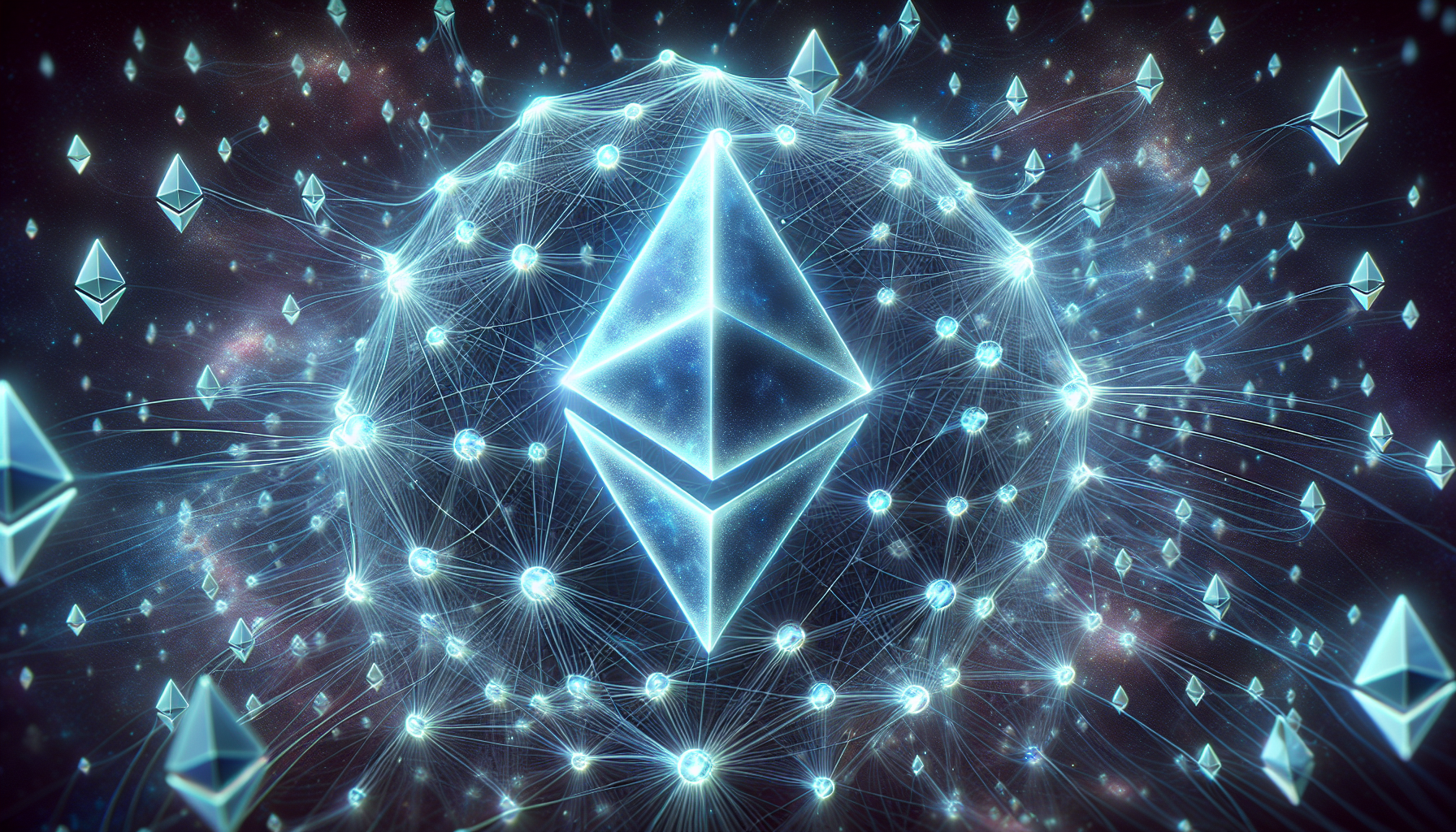What is this Document?
Please note: This overview is intended to be a primer going over the material terms of the agreement in a simple, matter-of-fact way, so entrepreneurs can better understand and utilize the document.

The Sample Warrant is a legal agreement that gives the Holder (the person or entity receiving it) the right, but not the obligation, to purchase digital tokens from the issuing company (the “Company”) or its affiliates at a future date, under certain conditions. Think of it as an option: the Holder can choose to exercise the Warrant and receive tokens if and when they come into existence, but doesn’t have to.
Key Idea:
- The Warrant covers “Tokens” that the Company (or related parties) may create in the future. If the Company, or one of its affiliates, ever launches these Tokens, the Holder has the right to receive a certain amount of them.
Why Use a Warrant for Tokens?
Startups and other companies working on blockchain or token-based projects often need a way to align early supporters, investors, or service providers with the future success of a token network they might build. A Warrant can “pre-set” some terms so that if and when Tokens launch, everyone knows how many Tokens the Holder can receive and on what conditions.
Not a Guarantee:
It’s possible the Company or related parties never actually issue any Tokens. The Warrant just sets out what happens if they do.
How Does it Work in Practice?

- Issuance: On the day the Warrant is issued, the Holder pays the “Purchase Price,” effectively locking in their right to obtain Tokens in the future.
- Trigger Event – Token Structuring or Launch: If and when Tokens are actually created (what the Warrant calls a “Token Structuring Event”), the Holder may “exercise” the Warrant. Exercising means either paying a pre-agreed price (the “Warrant Exercise Price”) or using a “net exercise” method to turn the Holder’s right into actual Tokens.
- What Tokens & How Many?: The number of Tokens the Holder can receive is based on a formula tied to a “Portion” or “Pro Rata Portion” of the total token supply (the “Total Network Tokens”). Essentially, if the Company decides on a total supply of Tokens, the Holder gets their fair slice.
- Time Limits (Expiration): The Warrant has an “Expiration Date.” If the Holder doesn’t exercise their right before the Warrant expires, that right goes away. There are multiple trigger points for expiration, including a set number of years, or a certain amount of time after the Company notifies the Holder that a Token Structuring Event is taking place.
- Payment Options: When exercising the Warrant, the Holder can pay for the Tokens with cash, wire transfer, cancellation of any Company debt owed to the Holder, or in some circumstances, by using a net exercise (which allows the Holder to pay the cost “on paper” rather than transferring additional funds).
Restrictions & Conditions:

- No U.S. Public Offer: The Warrant and Tokens are not registered with the SEC. This means they can’t just be sold or transferred freely in the United States. The Holder has to follow certain securities law exemptions.
- Transfer Restrictions on Tokens: Once the Tokens are issued, there may be certain “lockups” (time periods where the Holder can’t sell or transfer the Tokens) or other restrictions. If insiders (founders, employees, etc.) get more lenient restrictions, the Holder should receive terms that aren’t worse than what insiders get.
- Further Issuances & Changes: If more Tokens are ever created later (inflationary issuance, staking rewards, protocol updates), the Holder’s share should adjust so that they remain proportionate. Similarly, if something unusual happens (like a network fork) that changes the distribution of Tokens, there are provisions to rebalance holdings fairly.
Future-Looking Provisions:

- Reorganizations or Mergers: If the Company restructures or merges into another entity, the Warrant continues to apply, and the new entity must respect the Holder’s rights.
- No Obligation to Launch: The Company is not required to launch Tokens. If no Token comes to market, the Warrant might never be exercised, and the Holder might not receive any Tokens.
Investor Protections:
- Information Rights (Limited): The Holder generally invests without extensive information rights, but the Company agrees to provide notice before a Token Structuring Event or when the Warrant is about to expire.
- Confidentiality: The Holder must keep certain information about the Warrant and the Company’s plans confidential.
- Legal Provisions: The document includes standard legal terms about amendments, assignments, governing law, and what happens if a part of the Warrant is unenforceable.
Key Terms to Consider “Pro Rata Portion”
The “Pro Rata Portion” is essentially the fraction of the total token supply that the investor is entitled to receive, based on the amount they invested relative to a specified valuation benchmark. Here’s how it works:
- The document states:
“Portion” means, with respect to each Holder and any Token, such amount of Tokens as shall equal (without double counting) such Holder’s Pro Rata Portion of the Total Network Tokens. The “Pro Rata Portion”, means, with respect to each Holder, the ratio of (i) the purchase amount of the Holder’s SAFE divided by (ii) $[________].” - The number inserted into the bracket (i.e., $[________]) is conceptually the “post-money valuation” figure for the token network. By dividing the amount the investor put in (their SAFE purchase amount) by this specified valuation figure, you get a percentage. This percentage is then applied to the Total Network Tokens to determine how many tokens the investor will receive if and when tokens are launched.
Example:
Suppose the investor invested $100,000 (the “purchase amount of the Holder’s SAFE”) and the Company sets the figure in the bracket at $10,000,000. The investor’s Pro Rata Portion is $100,000 ÷ $10,000,000 = 0.01 or 1%. This means that if the Company decides the total supply of tokens is 100 million Tokens (the “Total Network Tokens”), the investor’s “Portion” would be 1% of 100 million, i.e., 1 million Tokens.
For the entrepreneur, putting that figure in the bracket is like setting a target valuation benchmark at the time the Warrant is issued—effectively deciding, “If tokens ever launch, we’re treating the network’s post-money valuation as $[________].” The investor’s share is then directly tied to how much of that “valuation” they bought in for with their SAFE investment.
Conclusion and Summary

The Sample Warrant serves as a vital tool for aligning early supporters, investors, or service providers with the future success of a blockchain or token network project. It offers the Holder a clearly defined right to receive Tokens if and when they are launched, with key mechanisms in place to protect their interests while maintaining flexibility for the Company. The Warrant is structured to provide clarity around token allocation, payment options, time limits, and other essential provisions, ensuring a fair and transparent process for both parties.
Importantly, the Warrant does not guarantee that Tokens will ever be launched. Instead, it establishes terms to guide what happens if a Token Structuring Event occurs. This framework balances the entrepreneurial need to attract support with the Holder’s need for clear and equitable rights.
For entrepreneurs, the Warrant offers an effective means to set expectations and predefine key terms of engagement. For investors or service providers, it provides a structured pathway to participate in the potential upside of a token network. However, careful consideration should be given to the document’s restrictions, time limits, and legal implications.
Useful Resources
To better understand and utilize a Sample Warrant, consider exploring the following resources:
- Token Issuance and Regulation
- SEC Guidance on Digital Assets – Learn about the regulatory landscape for token issuance in the United States.
- Understanding Tokenomics – A primer on how token supply and economics work in blockchain projects.
- Legal Frameworks
- Legal Basics for Startups – An excellent resource for understanding agreements like SAFEs and Warrants.
- Guide to Smart Contracts – Explore the use of smart contracts in token distribution.
- Pro Rata Rights and SAFE Agreements
- SAFE Financing Documents – Examples and explanations of SAFEs, which closely relate to Warrants.
- What is a Pro Rata Right? – Understand how these rights function in investment agreements.
- Blockchain and Token Standards
- ERC-20 Token Standard – Familiarize yourself with one of the most widely used standards for tokens.
- Token Engineering Commons – Dive deeper into best practices for designing token ecosystems.
By understanding the material terms of a Sample Warrant and accessing relevant resources, entrepreneurs and investors can navigate the complexities of token-based agreements with confidence and clarity.


